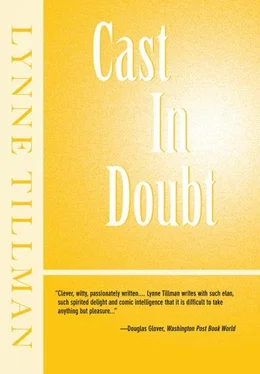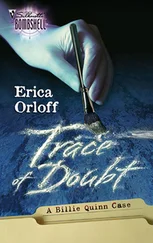I know Gwen is going to disabuse me of this and upbraid me. She will most likely tell me that my fascination with Helen has to do with my being isolated, out of touch with my base, or that it comes from alienation, loneliness, or that my desire for progeny can’t be fulfilled by Yannis. She’ll think of something, I’m sure. I do agree — there is something strange about my relationship to Helen. Her curtains are still drawn. Perhaps she is traveling or hiding. Helen may be spending time with the Gypsy.
Gypsies pass through this way with some regularity, and some have settled not far outside of town. Thousands of Gypsies live in Greece and have for years. But I have always been suspicious of them. It’s a prejudice, yet I cannot shake it. I don’t understand their ways at all, and they have not yet come into my mind as individuals. Alicia has some sociological books on them. I think I’ll pay her a visit while Gwen sleeps. It’s still early for dinner. I’ll just leave Gwen a note and toddle off. See Alicia. And John, of course.
Generally I like this time of day. Dusk elicits neither happiness nor sadness. It doesn’t demand a precise response. The boats are rocking gently on the water. The slight nip in the air is invigorating. I walk briskly up the hill to Alicia’s house. I knock boldly on the thick wooden door. John answers and lets me in. His neck is healed. He wears a small bandage on one part of it only, which I suppose is the place where most of the damage was done. I shudder to think more on it. His violet eyes, I detect, light up at the sight of me. How curious — he’s glad to see me.
Just a short visit, I explain quickly, embarrassed. How’s Helen? John asks in a muffled voice. She’s well, I lie, since I most assuredly don’t know how she is. He makes his inquiry at the base of the stairs, out of Alicia’s sight and hearing. He dawdles, waiting for something more, some more meaty disclosure, and as he dawdles, he scratches his cheek lazily. His cheekbones are high, and today he reminds me of a foppish lad I went to school with. I want to offer other, better information and thus add portentously, She’s taken up with a Gypsy, John. A girl, woman. Yeah, John snorts, what is she going to do — live in a cave? I shouldn’t think so, John. I answer him with as much dignity as I can, more for Helen’s sake than my own. She’s much too urban for that, I insist.
I follow him up the stairs. His tanned feet are bare and dirty, and I recall following my first lover up the stairs to his bedroom when his parents were away. His feet were very dirty too. He committed suicide many years later, I heard, which also reminds me of John and his recent botched attempt. When I knew my first beau, he was furtive and guilty but he possessed a mad sense of humor. In those days a practical joker was much prized, a wicked but wickedly appropriate spoof much appreciated. I once was served coffee in a porcelain bowl, not a cup; I spent several minutes searching for the piece that holds the index finger. My friends howled as I spun the bowl around, again and again, feeling but not looking for the handle. My friends knew I never looked at what was in front of me when I was engaged in conversation. It is the same today. Many things do not change, though we Americans expect everything to change all the time, which is why we are so easily disillusioned.
Alicia is reclining on her Moroccan couch. She’s in blue, a violet blue. Her cheeks and nose blush pink and there’s something indefinable about her mood. Were I a vulgar man, I would imagine she’d just had an orgasm. An orgasmic flush had spread over her precious womanly body, that’s how our South African Don Juan, Wallace, might pen it. She’s lost weight, I think, though I’m not really able to imagine what Alicia’s body is like. She wears flowing robes and loose trousers and shirts. She waves her hands in the air grandly when making certain points. Her wrists are thin and delicate, her hands well-shaped, each finger pink and clean, her nails are covered in a clear polish. When quite still she seems active or about to be. One might call her intense. She moves with her mind. Your mind races ahead of you, Mother used to say to me.
I’ve just been playing the piano for John, Alicia says, and touches her brow as if the heat of playing had overcome her. She sang for me, too, John declares, looking down. I hate opera, but when Alicia sings, it’s okay. How wonderful of Alicia to sing for you, John. You haven’t sung for me in ages, Alicia, I complain petulantly. She smiles patiently.
Alicia is all pink and blue, like wallpaper in a baby’s nursery. She hasn’t sung for me in a long while. I used to cherish her private recitals, sung on nights that were gray and rainy, in November and December, when the mistral blows this way. She would clasp her hands under her breast, purse her full lips to contour sound, shaping it this way and that with ovals and circles; she emitted lovely bell-like tones and her voice transported me. I had assumed she’d given up singing, at least in company, and feel rather peeved that this scruff of a boy has become her audience.
On the other hand, this scruff of a boy is immensely pretty. Alicia and I both look at him at the same time and then look at each other. Much passes in this glance. She offers us wine, my favorite, Demestica, which I cannot refuse. My curiosity about their relationship grows by leaps and bounds. How are you spending your time, John, and will you stay here long? I inquire. Alicia directs her attention to him with an interest as great as mine. Obviously she must also be in the dark about his future plans. He swallows his wine, wipes his mouth, and says he hasn’t decided, but he doesn’t think he’ll be here that long, because there’s no way he can do his music here. Also, he says he’s nearly out of money. Impulsively I respond that I need some carpentry done, if he does that kind of thing, bookcases and so on. He perks up, observing — inspecting? — me from under his long dark lashes. Those violet eyes. Alicia seems surprised or startled but not upset, I think. The question one always wants to ask of truly ravishing individuals like John is how well aware of it are they.
The wine loosens John up; he becomes almost voluble. He likes Greek food and espouses reasonable sentiments about the people, all nuanced by a fashionable coolness and a studied inarticulateness. He seems a distrustful type, I think, but like most callow youth, betrays an enthusiasm for life — against his will, I should imagine. He discusses bouzoúki music and is apparently somewhat knowledgeable about musical instruments. He talks of modalities; I think of Joyce and modalities, the ineluctability of the visible, wasn’t it? What is ineluctable here? Alicia and I are ineluctable modalities, and John is rapturous dissonance. During the day, John tells me, he fishes down at the end of the pier in the harbor and catches enough for their dinner. He wiles away many hours with hook, line and sinker — and bait. A rock-and-roll Huck Finn, I suppose. The doctor cautioned him to be quiet, which is what he’s doing, and of course he’s not taken any drugs in weeks. Which drugs, I do not ask.
I tell Alicia and John that I have a visitor; my best friend, Gwen, has arrived, I explain, and John asks, Gwen who? Gwen Duvanel, I answer, and he says, Wow, her. She’s cool, man, a scenemaker. Gwen? I say, surprised at the appellation, Gwen, a scenemaker? What a strange term, I announce, she’s much more than that…oh, I don’t mean that’s bad, man, you know, it’s a sixties word, scenemaker, and she’s kind of sixties, John says quickly, and, you know, she’s still on the scene, and for someone pretty old, she’s heavy, great.
Pretty old, I repeat to myself. I know that Alicia is also repeating that to herself and that the phrase is reverberating within her, too, somewhere.
Читать дальше












